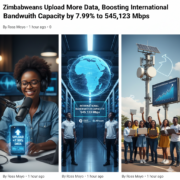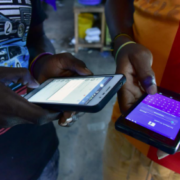Back in April 2017, India passed some laws that made WhatsApp group admins liable to the information shared in their groups in a bid to quash the spread of false or misleading information. Recently, the Zimbabwean government created a new Cyber Security, Threat Detection and Mitigation ministry with the same agenda. But while no stringent laws have been enacted yet to govern social media use in Zimbabwe, do you, as a regular person with a normal social media presence have to worry about the Cyber security ministry?
Suffice to say, the government will be watching, and I spoke to a lawyer friend of mine on the implications of the new Cyber security ministry and whether a regular person should be afraid of the watchful eyes of the ministry as it goes around trying to detect cyber threats. First, a source who declined to be named stressed on the need of knowing one’s rights.
“There is need to know about your rights, Freedom of speech is the same whether in person, face to face or online. You can still say what you want as long as you don’t infringe on someone else’s rights.” she said.
Given the need to govern social media use, it will be interesting to see how the new ministry will go about it in this regard and what laws they will come up with to protect people from having their rights infringed. Ironically hough, it seems as if any legal recourse the government may seek to take, may in actuality, be against the rights and freedoms of the people.
But what is it that constitutes infringement of one’s right? There in lies the tricky part that can see the government play around with infringement laws in a bid to simply quash social media use in Zimbabwe.
While the rights and freedoms of Zimbabweans as provided for in the constitution gives us a lot of freedom to act in a way we see fit, but that shouldn’t compromise how one enjoys his or her freedoms. If that happens, then one’s enjoyment of one’s right constitutes infringement of the rights of another.
It is important to know that no statute given can supercede the constitution, thus the people’s rights as indicated in the constitution will always work for them and protect them. These rights include the right to privacy, freedom of expression, access to information and political rights, among many other rights.
“The constitution overrides all statutes. So there might be limited things the government can legally do to thwart social media abuse. But while we may look at what the government may or may not do, there are also things that people do online that affect others and requires action to be taken.” she added.
Patrick Cinamasa’s appointmennt as a legal fundi to head the cyber security ministry renders it possible that the government will come up with some legal maneuvers to limit the political threat posed by social media.
While being a regular person may mean that you will be out of harm’s way, it is important to familiarise yourself with the rights and freedoms availed to you as a Zimbabwean and a social media user, and be wary of any laws the government will introduce to govern social media use.. Given the influx of information to mobile devices, some of which you may not have control over, it is important to note that even as a regular person, you might be turned into an unwilling accomplice in a dangerous game.











Comments